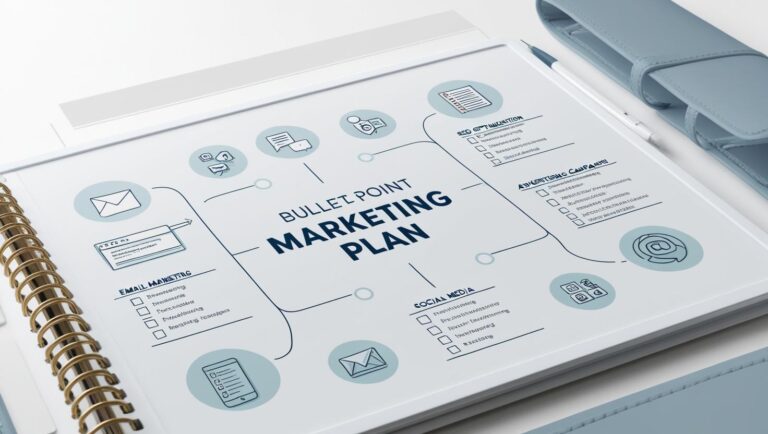How Much Should I Spend on Marketing? A Practical Guide for Small Business Owners
If you run a small business, you’ve probably asked yourself this question more times than you can count:
“How much should I actually be spending on marketing?”
It’s simple, but it’s loaded. In today’s world, marketing seems like a maze of endless platforms, tools, and agencies, all promising instant results. Social media trends flash by, influencer partnerships appear enticing, email campaigns look essential, and Google Ads glimmer as a quick fix. It’s no wonder small business owners feel overwhelmed. Without a clear sense of budget, it’s incredibly easy to overspend, underspend, or invest in strategies that don’t deliver real results.
This guide is here to cut through the noise. You’ll discover what the experts recommend, what really works for small businesses, and how to make your marketing budget stretch even if it’s tight. By the end, you’ll have a framework to create a practical, effective, and affordable marketing strategy that supports your business growth.
Why Your Marketing Budget Matters
Before diving into numbers, it’s important to shift the way you think about marketing. Marketing isn’t just another monthly expense on your books. It’s an investment—a tool that brings in customers, builds your brand, and increases revenue over time.
Without a clear budget, small business owners often fall into one of three traps:
First, they waste money on tools, ads, or platforms that don’t move the needle. For example, spending R5,000 on Facebook ads without understanding your audience or offer can result in clicks but no conversions.
Second, they panic-spend during slow months, hoping that a last-minute campaign will “save the month.” This reactive approach often leads to inconsistent results.
Third, they avoid marketing altogether, thinking, “I can’t afford it.” But inaction comes at a cost too. Every month without marketing is a month your competitors are visible and winning clients you could have served.
A well-planned marketing budget gives you clarity and control. You’re no longer reacting to trends or chasing shiny objects—you’re allocating funds intentionally, focusing on strategies that actually drive growth. In marketing, it’s less about how much you spend and more about how you spend it.
What Do the Experts Recommend?
Numbers give us a starting point, but context is key. Industry benchmarks can guide decisions, but they are rarely one-size-fits-all.
According to the Small Business Administration, businesses earning under R10 million per year with margins around 10–12% should allocate roughly 7–8% of gross revenue to marketing.
Start-ups or businesses in aggressive growth mode often invest more—10–15% of revenue in the first few years.
Established businesses with strong word-of-mouth networks may spend less, but the key is consistency. Even a small, predictable spend keeps your brand top-of-mind with potential clients.
But here’s the reality for many small businesses, freelancers, and side hustlers: revenue isn’t always predictable. One month may be booming, the next slow. That’s why applying a flat percentage of revenue isn’t always practical. Instead, a real-world approach prioritises budgeting based on what you can afford and what delivers results.
A Realistic Approach for Small Businesses
Rather than relying solely on percentages, small business owners benefit from a practical, goal-oriented approach. The foundation is simple: understand what you can afford, decide what you want to achieve, and spend strategically to reach that goal.
Start With What You Can Comfortably Afford
Even a small, consistent budget is more effective than sporadic, large spends. Think of your budget like a workout routine: consistency beats intensity.
Ask yourself: How much can you commit without stressing your cash flow?
Maybe it’s R500 a month, enough to post content, maintain a simple email system, and do some organic promotion. Perhaps you can afford R1,500 or R5,000, allowing for targeted ads and small campaigns.
Whatever the number, the key is consistency. Regular investment creates momentum, allows you to plan campaigns, and produces measurable results.
Pick One Core Marketing Goal
It’s tempting to try everything at once: lead generation, social engagement, content creation, and launching new services. But spreading resources too thin often results in mediocre performance across the board.
Instead, focus on one primary goal at a time. Examples include:
Attracting new leads to your product or service
Increasing brand awareness in a specific market
Retaining and nurturing existing customers
Launching a new product, service, or promotion
Having a single goal ensures that every rand you spend contributes to a measurable outcome. It also makes tracking success easier, helping you refine your approach over time.
Break Your Budget Into a Simple Monthly Plan
Once you know what you can afford and your primary goal, structure your spend intentionally. For instance, let’s say your marketing budget is R2,000 per month, and your goal is to grow your email list. A practical allocation could look like this:
R800 on a well-designed lead magnet such as a PDF guide, checklist, or mini-course. This is a one-time investment that keeps generating value.
R500 per month for an email platform like MailerLite or Brevo, including automation setup and basic analytics.
R500 on Facebook or Google Ads to promote the lead magnet to a targeted audience.
R200 as a buffer for design tools, freelance support, or scheduling apps.
The focus here is clarity: each rand has a purpose and supports the same goal. By concentrating resources on a single objective, you avoid the trap of flashy, scattered spending that yields little return.
Common Marketing Budget Traps
Even seasoned business owners fall into marketing traps. Awareness is half the battle. Here are some of the most common pitfalls:
Buying followers or reach without strategy: 10,000 followers mean nothing if they don’t engage or convert into clients. Quality always beats quantity.
Investing heavily in design before messaging: A beautiful website or logo won’t drive sales if your offer is confusing or unclear. Clarity comes first.
Jumping from tool to tool: Marketing platforms are only useful if you commit and learn how to use them consistently. Constant switching prevents momentum and wastes money.
Avoiding these traps requires not just money but mindset and planning. Patience, focus, and consistent execution always outperform random, expensive experiments.
Stretching a Small Marketing Budget
A small budget doesn’t mean small results. In fact, smart strategies can amplify impact even when funds are limited. Here’s how:
Repurpose content across platforms: One blog post can fuel an email newsletter, three social media posts, and a short video or infographic.
Use free or low-cost tools: Canva for graphics, Notion for content planning, and ChatGPT for writing ideas or copy help reduce costs while maintaining quality.
Start with landing pages instead of a full website: A simple page promoting a lead magnet or service can convert as effectively as a multi-page site.
Focus on organic visibility: SEO optimization, Google Business Profile updates, and content that answers common questions increase visibility without recurring ad spend.
Collaborate with others: Partnerships, guest posts, and social shout-outs extend reach without extra financial outlay.
The principle is clear: focus and consistency matter more than sheer budget size. A well-planned, small-scale campaign often outperforms a flashy but unfocused one.
When to Increase Your Marketing Budget
Scaling your spend is about timing, not desperation. Increase your budget when:
You’re seeing measurable results and want to accelerate growth.
Your offer is proven, and you can handle more leads or sales.
You’re entering a product launch, seasonal peak, or marketing push.
Hold off if:
You don’t know what’s working or aren’t tracking results.
You lack the bandwidth to follow up on leads effectively.
You’re spending out of fear rather than strategy.
Remember, more money doesn’t automatically equal better results. Planning, focus, and execution always come first.
Example Marketing Budgets by Business Stage
Marketing budgets should grow with your business. Here’s a breakdown to make it practical:
Starter Budget (R500–R1,500 per month):
Free Canva for graphics
Starter email platform (MailerLite free plan)
Weekly social content posts
One lead magnet (PDF, checklist, or template)
Growth Budget (R2,000–R4,000 per month):
Paid ads for targeted traffic
Lead magnet plus email automation
SEO-friendly blog post support or plugin
Basic analytics and tracking
Scaling Budget (R5,000+ per month):
Google Ads campaigns with dedicated landing pages
Professional email campaigns and automation
Content repurposing and scheduling tools
Monthly strategy reviews to measure ROI
Notice the pattern: each stage builds on the last. Marketing success is about scaling purposefully, not spending blindly.
Making Your Marketing Budget Work Harder
Every rand should work. Here’s how to make your budget stretch further:
Repurpose content across channels: One blog post becomes emails, social posts, and short videos.
Focus on the channels your audience actually uses: There’s no need to be everywhere at once.
Measure performance consistently: Track leads, signups, and conversions, not just likes or impressions.
Automate where possible: Email sequences, ad campaigns, and social scheduling save time without sacrificing results.
Consistency, focus, and tracking are more important than a big budget. A modest, well-managed spend can outperform a large, unfocused one.
Final Thoughts: It’s Not About the Number — It’s About the Intention
Here’s the bottom line: you don’t need to spend R10,000 a month to grow your small business. You don’t need the latest tools, huge ad budgets, or a full marketing team.
What you do need is:
A clear marketing goal to guide every decision
Consistent activity that nurtures leads and builds visibility
Strategic allocation of your budget to activities that move the needle
Marketing isn’t a gamble. It’s an investment in growth. Start small, stay focused, and be intentional. Over time, every rand you spend compounds, building momentum, visibility, and revenue for your business.
Even a modest small business marketing budget can produce measurable results, attracting clients, building authority, and helping your business grow sustainably.



